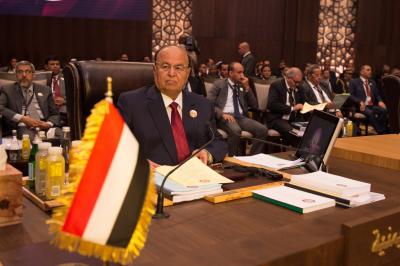Aden, Dec 19 : Yemen’s internationally-recognised President Abd-Rabbu Mansour Hadi has ordered the formation of a new power-sharing government, the state media reported.
According to a presidential decree issued on Friday, Hadi chose former Prime Minister Maeen Abdulmalik to lead the government, including a total of 24 Ministers, formed equally between the country’s northern and southern provinces, reports Xinhua news agency citing the state media report as saying.
The new power-sharing cabinet was declared in accordance with a peace deal signed between the country’s government and the Southern Transitional Council (STC) last year in Saudi Arabia’s capital Riyadh.
Hadi appointed General Mohammed Al Maqdashi as the country’s new Minister of Defence.
The well-known politician Ahmad Awad bin Mubarak was appointed as as the new Minister of Foreign Affairs, said the report.
Major General Ibrahim Haydan has been named as the Minister of Interior in the government-controlled Yemeni provinces, according to Hadi’s decree.
Five Ministers affiliated with the Southern Transitional Council were included in the formation of the new government.
The agency indicated that the formation of the new government came after completing the military and security provisions of Riyadh deal including the mutual withdrawals of warring troops in the country’s southern part.
On Wednesday, forces loyal to Yemen’s government and other military units of the Aden-based STC completed redeployment plans in the country’s southern part under Saudi Arabia-led coalition’s supervision.
Local military officials said that “the process of redeployment warring troops was completed successfully under the auspices of observers of the Saudi Arabia-led coalition”.
In 2019, Saudi Arabia persuaded the STC and the Yemeni government to hold reconciliation talks, which succeeded in reaching a deal to form a new technocratic cabinet of no more than 24 ministers.
But numerous obstacles have stood in the way of implementing the deal, including the Houthi rebels who are still controlling the capital Sanaa and other northern provinces of the war-torn Arab country.
The impoverished country has been locked in a civil war since late 2014, when the Houthis overran much of the country and seized all northern regions, including Sanaa.
Disclaimer: This story is auto-generated from IANS service.

